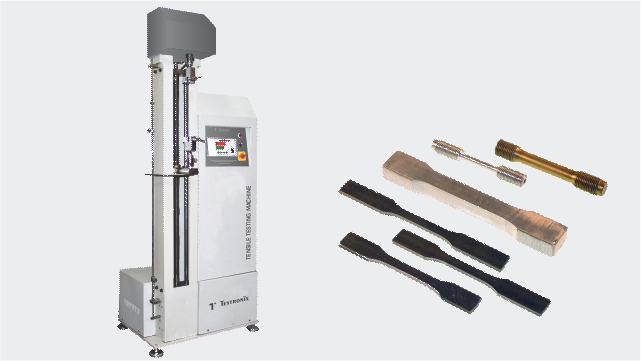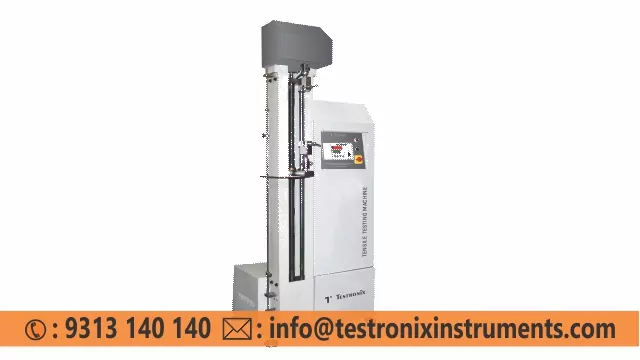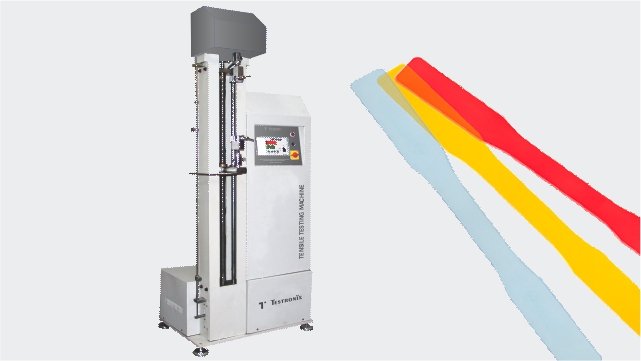Tensile strength testing is a common method used to ensure that materials and products meet the required specifications and standards. By measuring the tensile strength of a material, manufacturers can determine whether the material is strong enough for its intended use. Thus, we at Testronix have designed high-quality laboratory testing equipment known as tensile strength tester digital. This is one of the high-quality laboratory testing equipment that is used in various industries like plastics, rubber, metals, and many others to ensure the quality and safety of their products.
With the use of this elongation tester, one can easily test the tensile properties of the materials and ensure that quality products will be delivered to the customers. In this blog, we will discuss about how you can easily perform tension testing on materials with the help of Testronix tensile strength tester.
But first, let us focus on what is tension strength testing and why it should be measured.
What is tension strength testing and why it should be measured?
Tensile strength testing is a type of mechanical testing used to measure the maximum stress that a material can withstand when subjected to a stretching or pulling force, also known as tension.
During this quality test, a sample of the material is pulled apart by a tensile testing machine until it breaks or reaches its maximum stress point.
There are several reasons why tensile strength testing should be measured:
- Quality control: Tensile strength testing is an important part of quality control in manufacturing. By measuring the tensile strength of a material, manufacturers can ensure that the material meets the required specifications and standards.
- Material selection: Tensile strength testing helps in selecting the appropriate material for a specific application. Different materials have different tensile strengths, and selecting the appropriate material with the required strength can ensure the success and safety of the product.
- Structural design: Tensile strength testing helps in the design of structures and components that require a high level of tensile strength.
These reasons indicate, evaluating the elongation strength of the material is an important step in quality control. Now, let us discuss brief information about Testronix tensile strength testing machine.
Test the tensile properties of materials with a high-quality tensile strength tester
Testronix Tensile Strength Tester is a high-quality laboratory testing equipment used to measure the strength and performance of materials. It applies a tensile load to a specimen until it breaks or deforms, allowing for the measurement of the maximum tensile force that a material can withstand before failure.
This ASTM D882 tensile tester also plays an important role in the packaging industry.
In addition to measuring tensile strength, the Testronix Tensile Strength Tester can also be used to test the elongation properties of materials. Elongation is the percentage increase in the length of a material when subjected to a tensile force. It is an important property to measure because it indicates how much a material can stretch before breaking.
By testing the elongation properties of materials, manufacturers can ensure that their products can withstand the forces and stress they are intended to withstand without breaking. This is particularly important in industries such as textiles, plastics, and rubber, where materials are frequently stretched and subjected to high forces.
Overall, the Testronix Tensile Strength Tester is valuable testing equipment for testing the strength and elongation properties of materials. It can help manufacturers ensure that their products meet the required specifications and standards, and can aid in the development of new materials with improved strength and elongation properties.
Now, let us focus on the working of tensile testing machines made by the experts at Testronix.
How to perform tension testing on materials with Testronix tensile tester?
Performing a tensile strength test on materials using the Testronix Tensile Tester involves the following steps:
- Prepare the specimen: Cut a sample of the material in a rectangular shape with a 25 mm width and appropriate length, ensuring that the ends are flat and parallel. The dimensions of the sample should be based on the applicable testing standards and the material being tested.
- Set up the testing machine: Install the sample in the grips of the Testronix Tensile Tester and adjust the distance between the grips according to the length of the sample. Ensure that the grips are aligned with the axis of the sample and that they are tightened securely.
- Apply the load: Start the Testronix Tensile Tester and gradually apply a tensile load to the sample until it breaks or reaches its maximum stress point. The testing machine will record the maximum load that the material can withstand before failure.
- Record the results: Record the maximum load, and elongation strength of the sample. The results should be reported in accordance with the applicable testing standards and the material being tested.
- Analyze the results: Analyze the results of the tensile strength test to determine whether the material meets the required specifications and standards. Compare the results to other materials or to historical data to determine the relative strength of the material.
- Repeat the test: If necessary, repeat the test using additional samples to ensure the accuracy and consistency of the results.
Overall, performing a tensile strength test using the Testronix Tensile Tester requires careful preparation and attention to detail to ensure accurate and reliable results.
If you wish to take a live demo for the use of a Tensile strength tester then give us a call at +919313140140 or email us at info@testronixinstruments.com. Our team of technical experts will arrange a live demo session for the use of this quality testing equipment.








